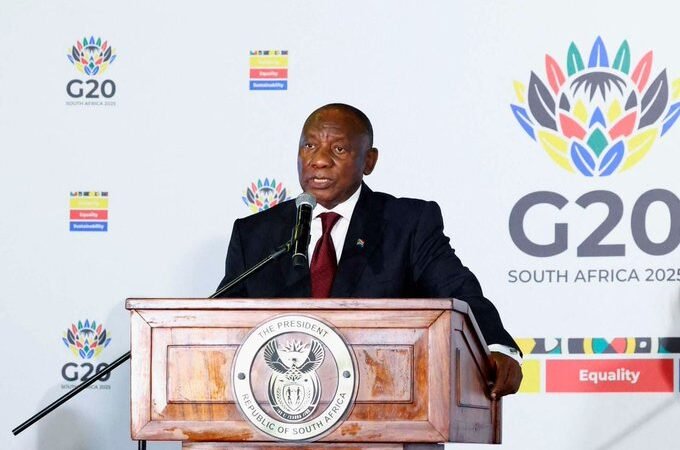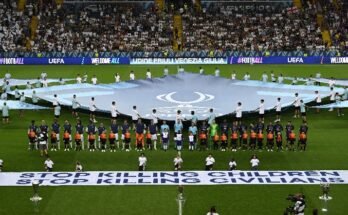South Africa’s inaugural presidency of the G20 is facing a challenging test as President Cyril Ramaphosa and ex-U.S. President Donald Trump are in a feud that eclipses the world economic forum. This shift occurs when South Africa is eager to ride its leadership position in advocating for Global South priorities, including climate finance, economic recovery and fairer trade regimes But diplomatic strains and ideological clashes among major members can destroy such efforts.
South African relations with the United States have worsened in recent months, fueled by a series of disagreements and confrontational actions. Among the most contentious has been Trump’s exchange with AfriForum, a South African lobby group that represents Afrikaner interests, which accuses the white minority in South Africa of human rights violations. Trump’s decision to suspend aid to South Africa based on these reasons was criticized severely by President Ramaphosa, who called the move “misguided and based on misinformation.”.
Ramaphosa has maintained that South Africa is in a position to handle its own internal affairs and that Trump’s move is a violation of the sovereignty of the country. The row has further added fuel to broader questions on whether the United States is prepared to support South Africa’s G20 agenda, in particular on issues of climate finance and trade reform.
Adding to the challenges, several key finance ministers and central bank governors avoided the G20 meetings in South Africa. They included U.S. Treasury Secretary Scott Bessent and Japan’s Finance Minister Katsunobu Kato, whose absence caused concerns regarding reduced major economies’ involvement in the G20 process. The boycotts have been interpreted as a sign of disbelief in South Africa’s leadership or susceptibility to diplomatic insult amid the spat with Washington.
The hesitation of some of the world’s major economies to play an active role in G20 negotiations weakens the group’s ability to respond to significant global economic issues. In the absence of inclusive participation and active membership, it becomes difficult to develop consensus on fundamental matters such as economic recovery, inflation control and debt relief for struggling countries.
One of the key objectives of South Africa’s G20 leadership is to secure additional climate finance for developing nations. Ramaphosa has been a vocal critic of richer countries to keep their promises under international climate agreements and provide financial support for green economy transition. These proposals have been met with resistance, particularly from the United States and other developed economies.
Disputes on trade policy and climate finance prevented the group from passing a joint statement at the most recent G20 meetings a once in a lifetime failure by the group. The developed world is hesitant still to commit to more funds, citing that their own economies are under strain. Emerging economies like South Africa are holding that with inadequate financial help, developing nations will be left unable to live up to climate targets and turn to cleaner power sources.
The presidency of South Africa in the G20 was seen as an opportunity to lift the voice of Africa around the world and to drive reforms that address the distinct economic requirements of developing nations. This strategy, however, is likely to be derailed by the interplay of geopolitics, internal divisions among the G20 countries and the Ramaphosa Trump disagreement.
While Ramaphosa remains dedicated to promoting a fairer world economic order, the diplomatic climate currently suggests that it will be difficult to make serious progress. The bigger question is whether the G20 itself is losing its ability to serve as a platform for global cooperation. With growing fissures among members and the omission of significant leaders from major meetings, the collective ability of the group to confront the world’s economic challenges grows more doubtful by the day.
As South Africa continues its G20 presidency, it must navigate these diplomatic tensions gingerly while searching for other avenues to advance its economic and environmental agenda. Whether or not it will be able to overcome such hurdles and use its leadership to effect meaningful change remains to be seen, but one thing is sure: the first African G20 presidency is a tough assignment, to say the least.
From Celebration to Crisis: Africa’s First G20 Faces Unexpected Hurdles



